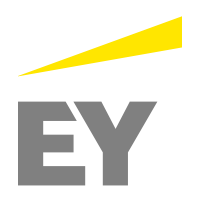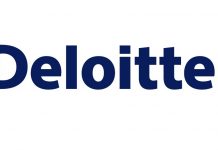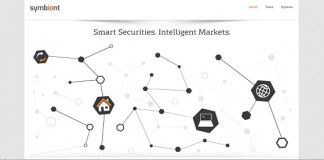Chain-Finance had a chance to discuss EY’s distributed ledger strategy with Angus Champion de Crespigny. Angus is a Senior Manager in EY’s Financial Services Office where he leads the firm’s distributed infrastructure strategy for the financial services industry.
How large is EY’s blockchain practice? How fast is it growing? Are you hiring blockchain specialists?
We’ve structured our team slightly differently than a single, dedicated practice. Our firm provides services to clients based on their business strategy and objectives, and our blockchain and distributed infrastructure strategy is no different. That is, we’ve made a point from the start of embedding an understanding of this technology within our sectors and service lines to be used as another toolset when considering how to help our clients achieve their objectives. A blockchain product which addresses capital markets issues is still a capital markets product and should be evaluated in the same business-first context as other capital markets solutions.
Saying that, this technology has significant long term potential which is of strategic significance to our clients. What happens when value moves as easily as data? What happens when you can securitize car ownership and digital IP rights? What happens when you can digitally tie loans directly to the underlying asset, track its physical performance and dynamically adjust risk models and payouts? Should the organization be enabling this future environment? We help identify and analyze these impacts and are working on these future states - both from a technical and non-technical perspective, and outside of our traditional service lines and sectors where we work on use cases and business enablement projects. We have a dedicated team of more than 50 professionals globally working on these innovative, future state blockchain and distributed infrastructure applications and business models.
We are hiring blockchain specialists globally with ability to understand the intricacies of current business models, as well as having the innovative mind to be able to see how they could be disrupted.
Can you discuss corporates or startups that you have been working with?
While we don’t speak about our clients and many of our relationships are confidential for now, I can say we have long standing alliances with IBM and Microsoft and have been working with them both in this area. We have, or have had, some sort of relationship with most of the major technology vendors. We’ve done a good amount of work with our established clients to identify new opportunities, roll out frameworks, or develop pilots of specific applications, and this continues to grow rapidly.
What blockchain protocol(s) is EY working with?
We are working with or have worked with all major protocols and vendor platforms.
There is significant movement by major global banks to blockchain technology, but most are working on permissioned ledger platforms. Is this where the market is going to move?
That is where the market is moving, but not necessarily where the market will end up. Permissioned ledger platforms look similar to the current established networks which require certain regulatory controls, and consequently are the logical starting point for understanding the power of this technology and I’m sure we’ll see some benefits come out of that. In reality however, new technology really shows its promise with new business models. The Internet, for example, increased the efficiency of many existing businesses, but it is the new business models which have become the real stars. We should focus on what those new businesses are, and not be the financial services equivalent of a record company in the 90s looking at the Internet wondering how they can use it to sell more CDs.
Is there still opportunity or type of customers to offer open, permission-less blockchains?
There is a lot of potential in the industry to both rethink existing business models and create new ones, and public blockchains will play a role in that. Right now, if you want to prove that something happened in the digital world beyond any doubt, there is no better place to prove that than via the Bitcoin blockchain. That is extremely valuable. We see a lot of potential to create new markets and digitize assets where you could not previously, and a public network with an established level of integrity is a logical neutral arbiter to be able to deliver that.
Will the banking system truly adopt a global standard, through R3 or Hyperledger, or will most banks develop their own “flavor” of distributed ledger?
Making predictions in this space is always tricky. There are many standards in the banking industry right now, and this technology provides another enabler to develop new standards. The key, however, is to not focus on the technology: it is only an enabler, and many of the issues observed by outsiders are not technology issues, but regulatory and operational issues. Theoretically, yes, the banking system could adopt a global standard, but the question would be “why?” What is the business problem that a global standard ledger solves, is it worth the cost to implement, and is there the urgency to apply budget to that out of the competing budgets banks need to deal with? Therefore, as far as permissioned ledgers are concerned, it may well be that there will be a number of ecosystems that come up tackling specific areas of the financial system, in the same way that we now have different exchanges that deal with different products.
The number of potential use cases for blockchain technology is enormous. Applications such as trade finance, trade settlement, healthcare management, logistics, and machine-to-machine/ IoT systems have larger and larger data and transactional throughput requirements (as I list them). As you know, the Bitcoin Blockchain cannot handle those requirements, and Ethereum despite all the hype is not there yet. What blockchain protocol, multiple chain or hybrid systems do you foresee being able to handle such high spec applications?
Technology solutions require a lot of design and architecture, but they also require tradeoffs. For example, there are a number of technology companies that have designed platforms with particular use cases and requirements in mind. Platforms will become more robust and scalable over time, but also a blockchain may not be needed and consequently used for all components of a solution. Just because you can build a smart contract for a particular process, it doesn’t mean you should. If, however, the blockchain can be used to provide identity, transfer ownership, and perform basic escrow actions, while the majority of data processing and collection is done off chain for example, the blockchain protocol requirements are much lighter.









It all seems very high level and abstract. There doesn’t seem to be any specific use cases which are articulate in detail how they use a blockchain.
For example “What happens when you can digitally tie loans directly to the underlying asset, track its physical performance and dynamically adjust risk models and payouts?” Where is the specific use of a distributed public ledger in this instance. What’s stopping an organisation doing this now with a centralised system?